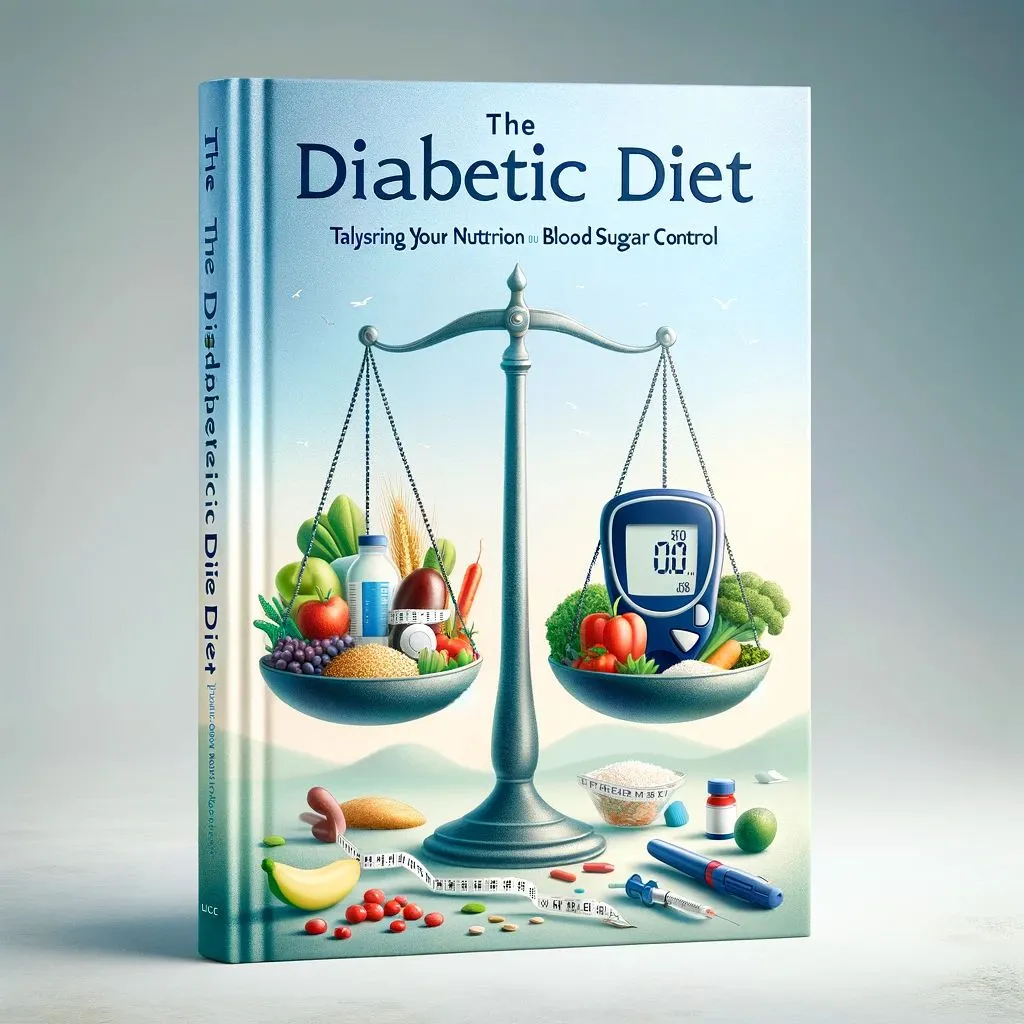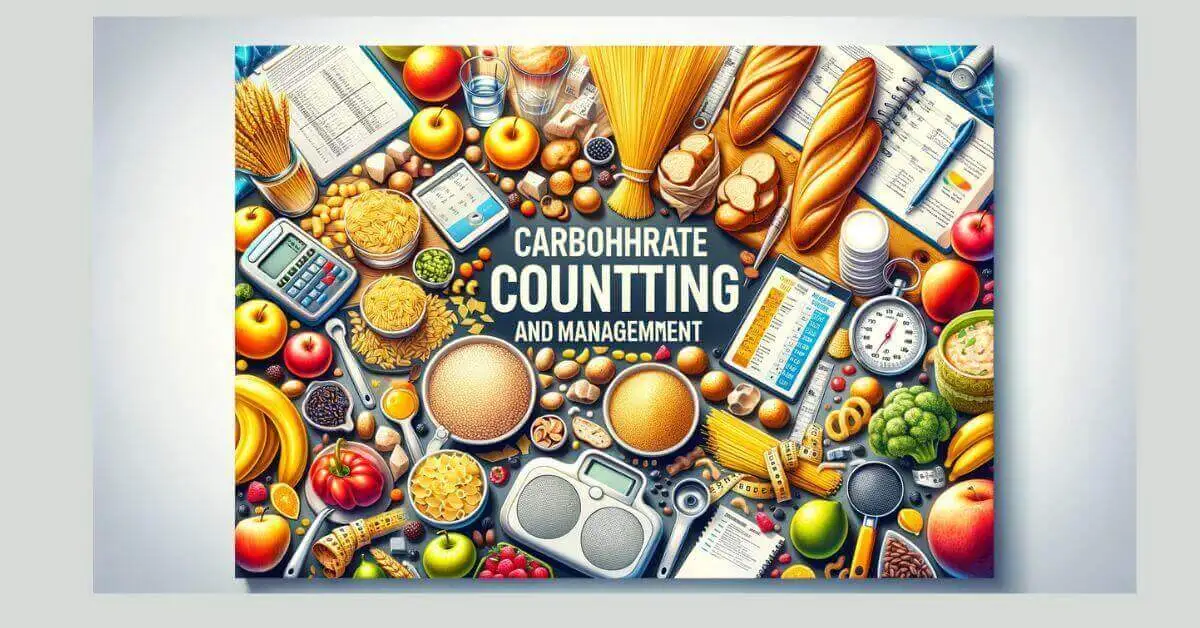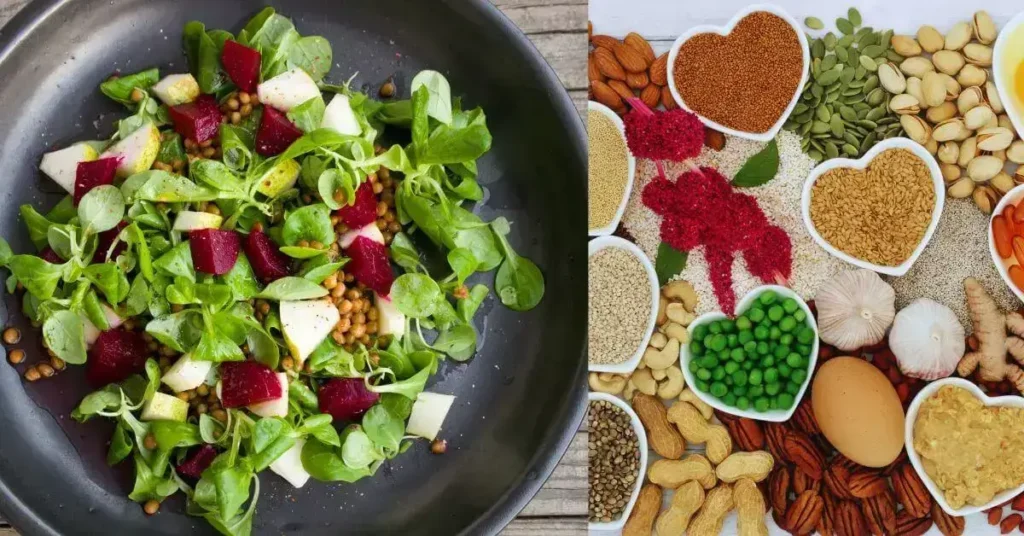“The Diabetic Diet: Tailoring Your Nutrition for Blood Sugar Control” is a crucial topic for managing diabetes effectively. A diabetic diet is not a one-size-fits-all plan but rather a tailored nutritional strategy to help maintain stable blood sugar levels, manage weight, and control risk factors for heart disease and stroke. Here are some key components and strategies for tailoring nutrition for blood sugar control:

Carbohydrate Counting and Management

Understanding and managing carbohydrate intake is essential for blood sugar control. This includes identifying sources of carbohydrates in the diet, understanding how different carbohydrates affect blood sugar, and learning how to balance carbohydrate intake with medication and physical activity.
Glycemic Index and Glycemic Load
Foods are ranked based on how they affect blood sugar levels. Diets focusing on low glycemic index (GI) foods can help maintain more stable blood sugar levels.
Consistent Eating Habits
Regular meal times and consistent carbohydrate intake can help prevent blood sugar spikes and dips. This includes having balanced meals with a good mix of carbohydrates, proteins, and fats.
Portion Control
Keeping an eye on portion sizes helps manage calorie intake and maintain a healthy weight, which is crucial for managing diabetes.
Fiber-Rich Foods
High-fiber foods, such as vegetables, fruits, whole grains, and legumes, help regulate blood sugar levels and contribute to overall digestive health.
Healthy Fats
Incorporating healthy fats from sources like avocados, nuts, and olive oil can help improve heart health without causing spikes in blood sugar.
Limiting Added Sugars and Refined Carbs
Reducing the intake of added sugars and refined carbohydrates is essential for controlling blood sugar and improving overall health.
Hydration
Staying well-hydrated is essential, but choosing drinks that don’t impact blood sugar, such as water, is crucial over sugary drinks.
Monitoring and Adjusting
Regularly monitoring blood sugar levels and making dietary adjustments based on these readings is vital for managing diabetes effectively.
Professional Guidance
Consulting with healthcare providers and dietitians can help create a personalized eating plan that considers individual health needs, preferences, and lifestyles.
It’s important to note that managing diabetes through diet is highly individualized. What works for one person might not work for another, so personalization and ongoing adjustment are key. For more detailed guidance and personalized advice, it’s recommended to consult with healthcare professionals who specialize in diabetes management.
Frequently Asked Questions about The Diabetic Diet: Tailoring Your Nutrition for Blood Sugar Control.
How should I plan my meals for blood sugar control?
The plate method is a simple and effective way to manage your diet. Fill half of your plate with non-starchy vegetables, a quarter with lean protein, and the remaining quarter with carbohydrates. Include small amounts of healthy fats and consider a serving of fruit or dairy, water, or unsweetened tea or coffee.
What is the A1C test, and what should my target be?
The A1C test measures your average blood sugar levels over the past 2 or 3 months. Most adults with diabetes should aim for an A1C between 7% and 8%. However, your target may vary based on age and other health conditions.
Can sugar cane juice raise my blood sugar levels?
Yes, sugar cane juice can affect your blood sugar levels. It’s essential to consume it in moderation and monitor your blood sugar levels to see its impact.
Can type 2 diabetes go away?
While type 2 diabetes is a genetic condition that doesn’t go away, it can be managed effectively. If your blood sugar is regular with treatment, the treatment is working. However, discontinuing treatment could lead to high blood sugar returning.
Will I need to take insulin for type 2 diabetes?
It depends. Historically, many people with type 2 diabetes required insulin therapy. However, with new medications available, the need for insulin therapy may be delayed or prevented.
Does taking insulin mean I have type 1 diabetes?
No, taking insulin does not mean you have type 1 diabetes. Your diabetes type is determined by genetics, not by the therapy used
What can I do to gain weight without increasing my blood sugar?
Choose healthy fats like coconut oil, grape seed oil, and avocado. These can be increased in your diet to raise calorie intake without significantly impacting blood sugar levels. Also, consider eating smaller, more frequent meals and using nutrition supplements.
Is it better to eat sugary foods all at once or spread them out?
It’s better to spread out the consumption of sugary foods. Binge eating, especially before bedtime, can lead to unstable blood sugar levels and disrupt sleep. Consuming sweets in moderation and not on an empty stomachis advisable.
Is sugar-free coffee creamer safe for diabetes?
Sugar-free does not necessarily mean carbohydrate-free. It’s essential to check the carb content of the creamer and understand its impact on your blood sugar levels. Caffeinated coffee can also temporarily raise blood sugar levels.
Should I eat regular meals if I’m trying to lower my blood sugar?
Eating regular, smaller meals with lower carbohydrate content can help maintain stable blood sugar levels. Skipping meals can lead to fluctuations in blood sugar levels.


